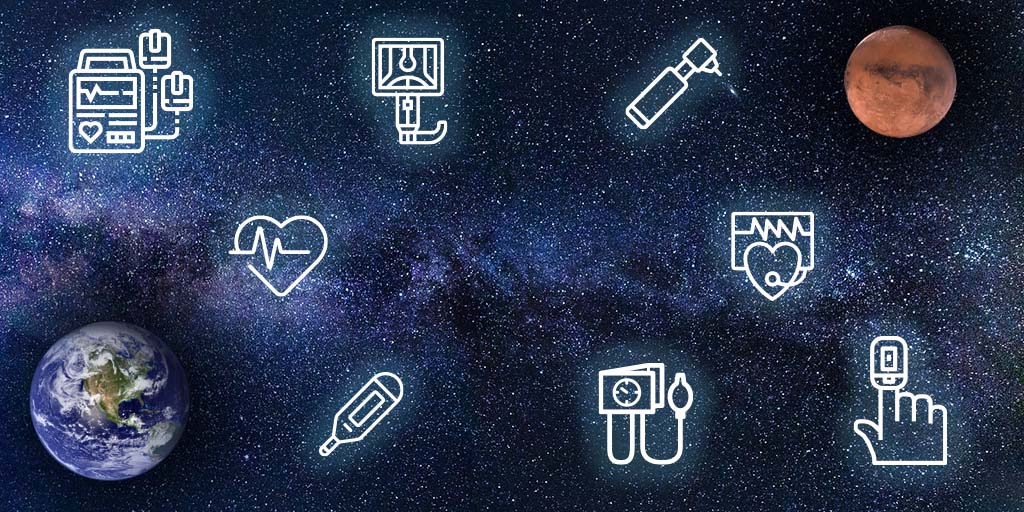Deprecated: No Longer Accepting Submissions!

The Exploration Medical Integrated Product Team (XMIPT) at NASA is seeking solutions to increase the mass, power, and volume efficiency of its exploration medical system. NASA seeks to better utilize mass and volume onboard future missions, particularly lengthy missions to Mars. To address this concern with regards to the health and safety of crew, it is desired to reduce the total number of medical devices/implements onboard by incorporating medical devices with a plurality of functions. Medical functions of interest include, but are not limited to, basic vital signs monitoring, ultrasound, and laryngoscopy.
Constraints
Devices should:
- Monitor vital signs, examples include (but are not limited to):
- Pulse oximetry – SpO2, SpCO
- Temperature
- Heart rate
- Blood pressure
- Incorporate secure video and audio communication
- Incorporate higher functions, examples include (but are not limited to):
- Ultrasound
- ECG
- Defibrillation
- Laryngoscopy
- Visual acuity
- Otoscope
- Ideally be FDA approved as medical devices
Possible Solution Areas include
(but are not limited to):
- Military medicine
- Emergency services
- Telemedicine
- Remote health monitoring
Related Tech Needs
NASA Seeking: Automated Medical Inventory System
NASA Seeking: Micro-Monitoring/Diagnostics for Humans
NASA Seeking: Precision Health Techniques
NASA Seeking: PC Application to run Medical & Scientific Devices
Seeking: Women’s Digital Health Startups & Femtech
Photo Credits
Laryngoscope by Eucalyp from NounProject.com
Ecg by Vectors Market from NounProject.com
Sphygmomanometer by H Alberto Gongora from NounProject.com
Fingertip Pulse Oximeter by Jongrak from NounProject.com
Heart Rate by Humam from NounProject.com
Thermometer by Humam from NounProject.com
Heart Rate by Eucalyp from NounProject.com
Otoscope by Humam from NounProject.com
Image of Mars by WikiImages from Pixabay
Image of Earth by WikiImages from Pixabay
Image of starfield by FelixMittermeier from Pixabay
